Dr. Amir H. Fariborz
Professor of Physics
Department of Engineering, Science and Mathematics
State University of New York Institute of Technology
P.O. Box 3050, Utica, New York 13504-3050.
E-mail: fariboa@sunyit.edu
Office: 1173 Donovan Bldg.
Tel: (315)792-7185
Teaching:
Spring 14:
PHY 201 Calculus-Based Physics I
PHY 361 Intermediate Mechanics
PHY 371 Electromagnetism
PHY 381 Quantum Mechanics
Research Interests:
Theoretical Elementary Particle Physics
There are four fundamental forces in nature: Gravitational,
electromagnetic, weak and strong forces. It is the main objective of
particle physics to explore these forces, and hopefully unify them into
one
fundamental theory. This goal, has made particle physics one of the
most ambitious, attractive, challenging, and powerful areas of physics,
and has attracted experts from other disciplines including pure and
applied
mathematics, and computer science.
My main area of research within particle physics is
related to the strong interaction through which protons and neutrons are
bound together. Of course, strong interaction is
not just limited to inside the nucleus, as protons and neutrons belong to
a large family of particles called hadrons, and all of these family
members experience the strong interaction. It is known that hadrons can
be best classified if they are to consist of other elementary particles
called quarks. The theory that describes the strong interaction of quarks
is called Quantum Chromodynamics (QCD). This theory is very well
established at high energies, and has successfully explained experiments
at these energies. On the other hand, due to computational difficulties,
this theory breaks down at low energies. At the present time,
understanding the low energy behavior of QCD is one of the main challenges
in theoretical particle physics. For more details of my work, please
refere to list of my publications, invited talks, technical description of
my research and additional links given below.
Publications (SPIRES database)
Recent invited talks
An overview of my research
SUNYIT in the list of high energy physics institutes
A technical description of
my
research
Research
Award: 2004 William Goodell Research Creativity Award
Some recent highlights of my research
My recent visit of WASA/COSY Accelerator Facility at Julich,
Germany
Other braches of high energy physics that I am generally
interested in
are: Quantum
Field Theory, Standard Model of Particle Physics, Heavy Quark Physics,
Supersymmetry, Supergravity and Superstrings.
Computational Physics
Computational techniques play very important roles in any area of physics
in which certain degree of calculational difficulties exist. In all areas
of computational physics, significant amount of applied mathematics (in
particular numerical analysis, ordinary/partial differential equations and
symbolic manipulation) and computer skills are employed, in order to
solve/approximate physics problems for which either an exact solution does
not exist, or a pure analytical approach is not efficient. Moreover,
computational physics provides general techniques of solving physics
problems which are not just limited to any specific area of physics, and
are indeed applicable to a wide variety of theoretical, experimental and
industrial problems.
My research in theoretical elementary
particle physics involves many calculational complications. I
have used
symbolic manipulation, numerical analysis, as well as a combination of
symbolic-numerical techniques in most of my research projects. For some
examples of my typical computations please see the link below.
Typical Computations
Conferences that I have organized and proceedings books that I have
edited:
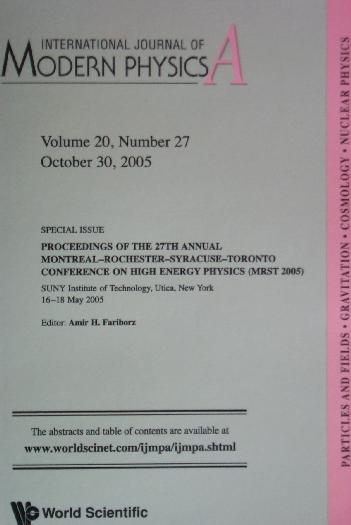
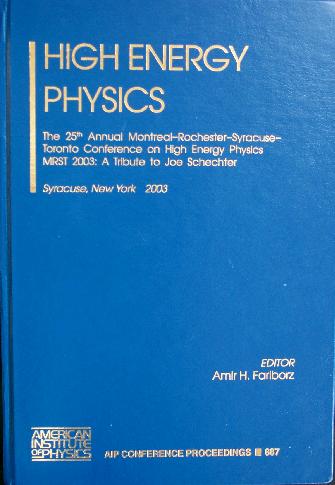
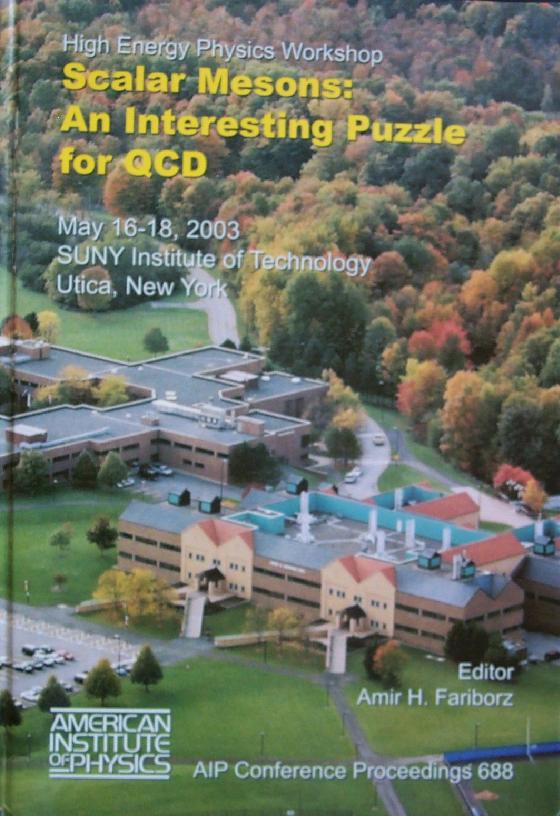
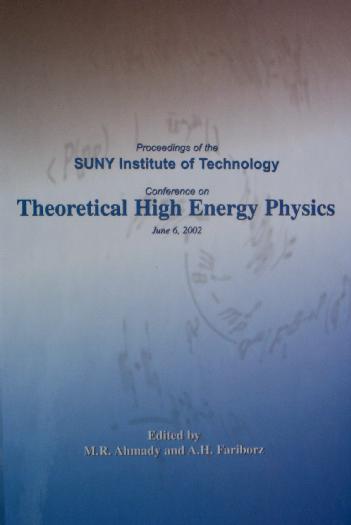
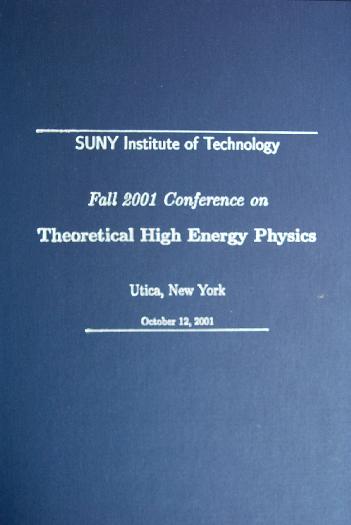
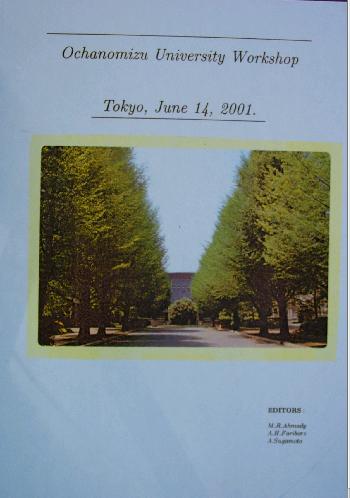
For more info on these events please see the following links:
The 27th
Annual MRST
Conference, May
16-18, 2005
Scalar Meson Workshop, May 2003
The 25h annual MRST
Conference, May 2003
SUNYIT Conference on Theoretical High Energy
Physics, June 2002
Theoretical High Energy
Physics Conference at SUNYIT, October 2001
Theoretical High Energy
Physics Workshop at Ochanomizu University, June 2001











